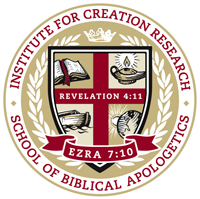The Gifts of God
You are here
Home / The Gifts of God"Every good gift and every perfect gift is from above, and cometh down from the Father of lights, with whom is no variableness, neither shadow of turning" (James 1:17).
In the days of the Bible, times of great joy were often accompanied by the giving of gifts, one to another (e.g. Nehemiah 8:10; Esther 9:22; Revelation 11:10). This ancient custom, practiced commonly in all nations throughout history, finds its greatest expression today at Christmas time, when the joy of the wise men (Matthew 2:10) and the joyful tidings of the angels (Luke 2:10) echo in millions of family circles around the world and, even where Christ Himself is not known, people share the joy of giving.
The Gift of Creation
But giving began with God! Human gifts are imperfect often wrongly motivated, frequently unappreciated, always defective and temporary. Gifts that are good gifts and perfect gifts come only from above, from the Father of lights. The marvelous universe itself, as it came from the creative hand of the great Giver, was good and perfect. In fact, God pronounced it "very good" and then "rested," having "finished" (that is, "perfected") everything He had created and made (Genesis 1:31-2:3).
God began with a good and perfect creation and He has maintained that standard, for with Him "is no variableness, neither shadow of turning." Both He and His creation remain forever. In fact, this principle as seen in the natural world is now recognized by scientists as the most universal of all scientific laws?the principle of conservation of matter and energy, the "first law of thermodynamics."
Into this perfect creation, however, has appeared an intruder, a disordering agent. By man came sin, and then came the great Curse, and now the whole creation is under the bondage of decay (Romans 8:20-22). In science, this also is recognized as a universal law, the principle of increasing entropy the "second law of thermodynamics," the universality observed fact that everything tends to wear out, run down, disintegrate, grow old and die. The term "entropy" (from two Greek words, en and trope, meaning "in" and "turning") itself suggests that any system which "turns inward" for its strength will soon decay.
But with God is no "shadow of turning (trope)." He is not only invariable in essence, but unchanging in nature. Thus, every gift from God is still a good gift and a perfect gift! Not only was His created world perfect, but so also is His inspired Word (Psalm 19:7; 119:89).
The Father of Lights
Theme of giving is strong in the Scriptures. The words "give," "giving," "gift" and other such words occur at least 2100 times. The very first occurrence, however, is in connection with the giving of light. God placed the great lights in the heavens "to give light upon the earth" (Genesis 1:15). Light is the basic energy by which all creation functions but, so far as the earth is concerned, it is the particular light from the sun which energizes all earth's processes. God Himself is the Light (Genesis 1:3; I John 1:5; Revelation 22:5) and that light antedates the sun, but He made the "lights;" He is the Father of lights.
In the same manner as joyful celebrations commonly involve gift-giving, so they have always involved many lights. When Christ came into the world, the shepherds saw the glory shining (Luke 2:9), the wise men saw His star (Matthew 2:2) and John testified that the "true Light" had come (John 1:9). Today, the remembrance of His birth is everywhere marked by an abundance of lights. Even the Jews; festival of Hanukkah, observed concurrently with Christmas, is called by them the "festival of lights ."
The Other Gifts of God
Our purpose here does not require a comprehensive study of the Biblical theme of giving, but we can at least examine the specific gifts of God that are listed as such in the Scriptures. There are actually eight times when the phrase "gift of God" occurs in the Bible, with the plural "gifts of God" occurring once.
In the Old Testament, the emphasis is on God's material blessings, with the only two references being found in Ecclesiastes.
"That every man should eat and drink, and enjoy the good of all his labor, it is the gift of God" (Ecclesiastes 3:13).
"Every man also to whom God hath given riches and wealth, and hath given him power to eat thereof, and to take his portion, and to rejoice in his labor; this is the gift of God" (Ecclesiastes 5:19).
Let no one, therefore, take personal pride in his own abilities or his possessions! They are, in the deepest sense, gifts of God's grace.
Spiritual blessings are far more important than physical and material blessings, however, and all six of the New Testament occurrences of this phrase, the "gift of God," emphasize these. Three of these are translations of the Greek dorea ("freewill gift"), with three from the Greek charisma ("gracious gift") but, for our purposes, the meaning is so nearly the same that they can almost be used interchangeably.
God's Spiritual Blessings
These six New Testament gifts of God are listed below in order as we trace them sequentially through the New Testament.
-
The Gift of Christ Himself
"If thou knewest the gift of God...thou wast have asked of Him ?" (John 4:10). -
The Gift of the Holy Spirit
And when Simon saw that?the Holy Ghost was given, he offered them money,?. But Peter said unto him, Thy money perish with thee because thou hast thought that the gift of God may be purchased with money" (Acts 8:18-20). -
The Gift of Eternal Life
"For the wages of sin is death, but the gift of God is eternal life through Jesus Christ our Lord" (Romans 6:23). -
The Gift of Individual Personal Abilities
"But every man hath his proper gift of God one after this manner, and another after that" (I Corinthians 7:7). -
The Gift of Salvation through Faith
"For by grace are ye saved through faith, and that not of yourselves: it is the gift of God" (Ephesians 2:8). -
The Gift of Confident Love
"Wherefore?stir up the gift of God, which is in thee?. For God hath not given us the spirit of fear; but of power, and of love, and of a sound mind" (II Timothy 1:6,7).
The Permanence of God's Gifts
If all of the gifts of God are good and perfect, it is no surprise that they are eternal. It is significant that the sole occurrence of the plural "gifts of God" stresses this wonderful truth. "For the gifts and calling of God are without repentance " (Romans 11:29). Every one of these gifts of God will be ours to treasure throughout eternity.
The last mention of giving in the Bible has to do with the rewards which Christ will give His faithful servants at his return. "And, behold, I come quickly; and my reward is with me, to give every man according as his work shall be" (Revelation 22:12). He is the great Giver, from the first chapter of Genesis to the last chapter of Revelation!
Therefore, as we share once again the lights of Christmas and the joy of giving gifts to those we love, let us be sure to remember the Father of lights and that greatest of all His good and perfect gifts.
"For God so loved the world, that He gave His only begotten Son, that whosoever believeth in Him should not perish, but have everlasting life" (John 3:16).
Then, after contemplating His great gift and the love that determined it, we can respond only in praise and wonder:
"Thanks be unto God for His unspeakable gift" (II Corinthians 9:15).


